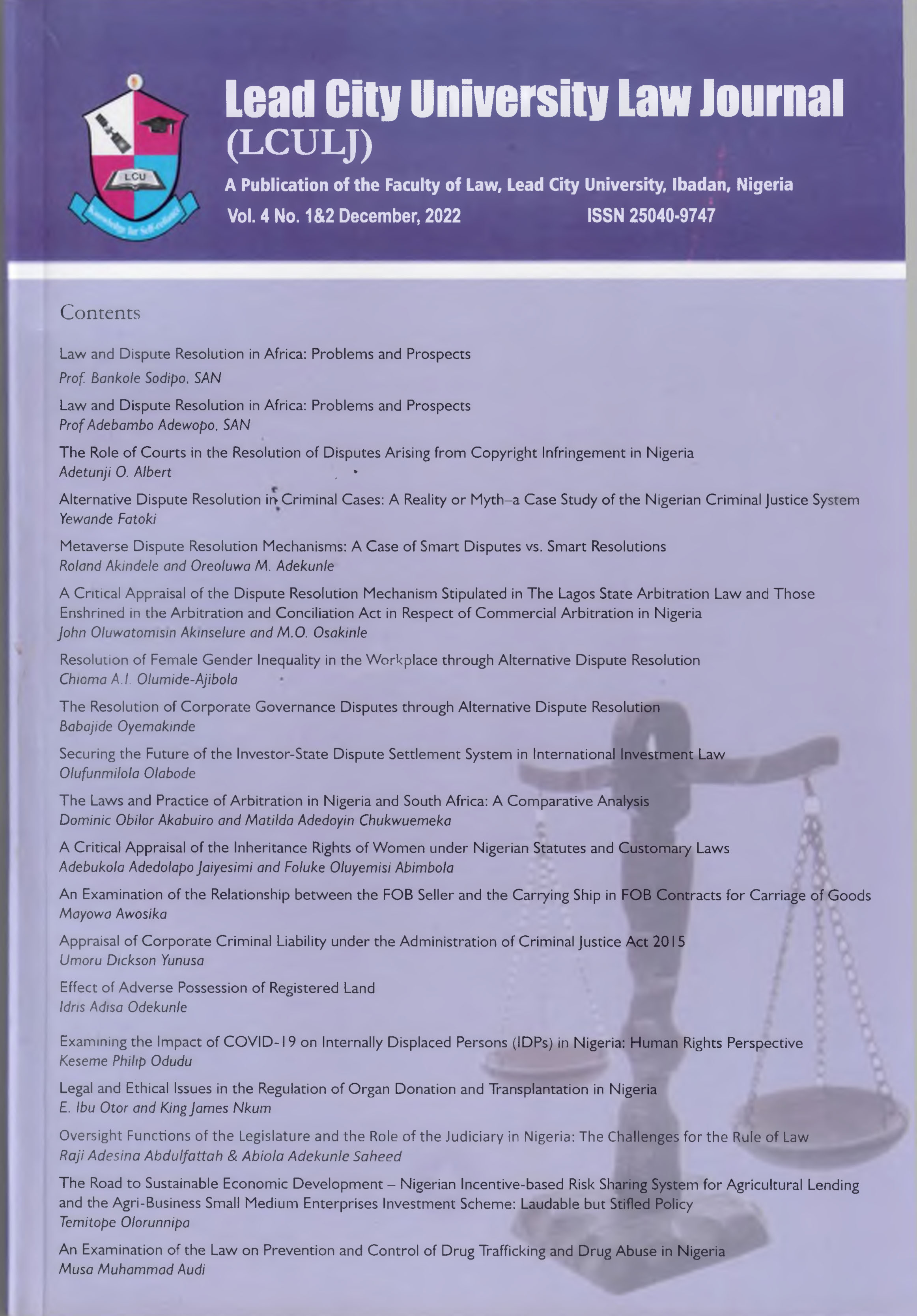EXAMINING THE IMPACT OF COVID-19 ON INTERNALLY DISPLACED PERSONS (IDPs) IN NIGERIA: HUMAN RIGHTS PERSPECTIVE
Keywords:
Covid-19 Pandemic, Internally Displaced Persons, Human Rights, Boko Haram, 1999 CFRNAbstract
Nigeria has a population of about 182.2 million people. It ranks among the top of countries in
Africa with the highest population of internally displaced persons (IDPs). Since 2009, violent
conflicts between government forces, bandits, and Boko Haram insurgent groups have affected
many people in different parts of the country, particularly the North-East. This has claimed
several lives and left many internally displaced. IDPs suffer stigmatization and neglect by the
government/the host community. The harrowing experience of IDPs contravenes their right to
life, food, and healthcare. Their predicament is further heightened by the coronavirus COVID19 pandemic as they struggle to survive the impact of the conflict and the virus at the same
time. This paper examines the impact of COVID-19 pandemic on the rights of IDPs in Nigeria
and the role of the government to protect IDPs, based on relevant human rights provisions
guaranteed under the 1999 constitution of the Federal Republic of Nigeria (1999 CFRN). This
is achieved through literature review and analysis of relevant human rights provisions. The
paper posits that IDPs are highly vulnerable to the COVID-19 pandemic due to health risks
associated with their displacement, movement, and deplorable living conditions viz-a-viz lack
of access to clean water, sanitation, and hygiene facilities and services. The paper concludes
by emphasizing the urgent need to address the plight of IDPs in Nigeria in the face of the
COVID-19 pandemic and the role of government from the perspective of human rights
protection as guaranteed under the 1999 CFRN.

